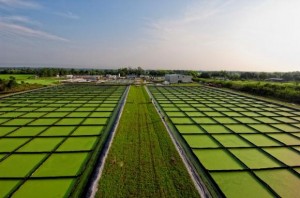 Alberta-based Suncor Energy has completed expansion of its St. Clair ethanol facility in Ontario, doubling the plant’s production capacity from 200 to 400 million litres of ethanol per year and making it Canada’s largest biofuel production facility.
Alberta-based Suncor Energy has completed expansion of its St. Clair ethanol facility in Ontario, doubling the plant’s production capacity from 200 to 400 million litres of ethanol per year and making it Canada’s largest biofuel production facility.
“The St. Clair Ethanol Plant is the platform for growth of Suncor’s biofuels portfolio, and our successful expansion of the plant’s capacity not only reinforces our commitment to increasing renewable energy options in Canada but builds on the strength of our relationship with the St. Clair Township and the Sarnia-Lambton Region,” said Jim Provias, vice-president, Renewable Energy.
Government representatives joined Suncor executives and local stakeholders at the event recognizing the completion of the $120-million expansion project. The expansion created approximately 250 construction jobs and the plant now supports 63 full time office and operating staff. The St. Clair base plant opened in June 2006.
 The Canadian Renewable Fuels Association praised Suncor Energy’s newly expanded St. Clair ethanol plant as proof of the tangible benefits of developing home grown renewable fuels in Canada.
The Canadian Renewable Fuels Association praised Suncor Energy’s newly expanded St. Clair ethanol plant as proof of the tangible benefits of developing home grown renewable fuels in Canada.
“Suncor’s early pioneering efforts in renewable fuels are now delivering real results,” said Mr. Gordon Quaiattini, President of the Canadian Renewable Fuels Association. “This state-of-the-art ethanol facility is creating new jobs, developing new rural opportunities and adding valuable new supplies of energy. It is also helping protect our planet for future generations.”
Suncor is one of the largest players in renewable energy in Canada. The expanded St. Clair Ethanol Plant, along with Suncor’s investment in four operating wind power projects across Canada, is expected to displace the equivalent of nearly one million tonnes of carbon dioxide per year – the equivalent of the annual tailpipe emissions of approximately 200,000 cars. Two additional Suncor wind power projects are currently under construction and scheduled for completion in 2011. Construction on the 88 megawatt (MW) Wintering Hills wind power project in Southern Alberta, which began in the second half of 2010, is expected to be completed by the end of 2011. At peak operation the project is expected to generate enough electricity to power approximately 35,000 Alberta homes and displace 200,000 tonnes of carbon dioxide (CO2) per year. In addition, a 20 MW project is currently under construction west of Thamesville, Ontario and is expected to be completed by mid 2011.


 The award honors an individual who has made an outstanding contribution to the development of the biofuels industry and Horton was recognized for “providing thousands of drivers with convenient access to low-carbon, domestic fuels through Propel’s growing network of renewable fuel stations.”
The award honors an individual who has made an outstanding contribution to the development of the biofuels industry and Horton was recognized for “providing thousands of drivers with convenient access to low-carbon, domestic fuels through Propel’s growing network of renewable fuel stations.” Here is what FOE has to say about us:
Here is what FOE has to say about us:




